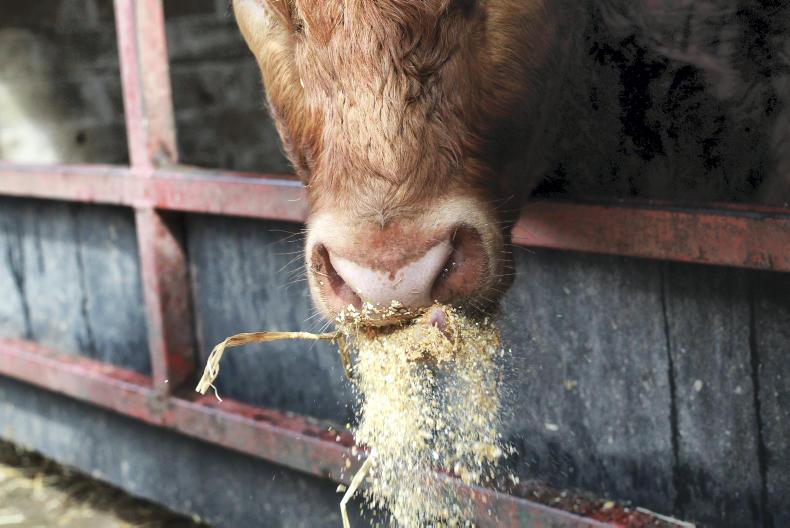Fertiliser costs have risen in the region of €50/t and feed costs €15/t in the last number of weeks.
Farmers are being quoted between €335/t and €370/t for urea, while CAN is being quoted at between €247/t and €266/t.
This is a substantial jump in price, but indications from co-ops are that fertiliser prices are set to increase again from the start of February.
“Everything is up between €40/t to €60/t compared to this time last year, and there’s no justification for this kind of price jump since the cost of production hasn’t increased, with only a marginal increase in the price of oil and gas,” Munster IFA regional chair John Coughlan said.
Feed prices
Meanwhile, farmers are having to wait up to six days once feed is ordered, as mills are working 24 hours a day to meet demand, with feed prices lifting by €10 to €15/t in the last few weeks.
An Irish Farmers Journal national survey of beef and dairy farmers this week found farmers finishing cattle are paying €250/t on average, with a range from €230 to €260/t.
Farmers feeding a higher-protein growing compound for weanlings and store cattle are paying an additional €6/t to €7/t for purchased feed.
Some merchants are blaming the escalating price of minerals on reduced availability in Europe due to a fire at a factory in Germany, which they say equates to a €10/t price rise in rations.
However, farmers argue that this rise is hard to tally, given the small mineral inclusion rates and the fact that only the availability of some minerals was impacted.
Irish Farmers Journal analysis shows that the price of wheat and barley has increased on average by €9/t for barley and €15/t for wheat.
However, the price of maize has dropped on average to €173/t in September 2017 to January 2018 from €177/t in 2016, and soya (export) has dropped €32/t in the same period.
Read more
Bord Bia scrutinising GM feed in QA schemes
Farmers fear feed price increases unnecessary
Creed to push for cattle exports in Turkey
Fertiliser costs have risen in the region of €50/t and feed costs €15/t in the last number of weeks.
Farmers are being quoted between €335/t and €370/t for urea, while CAN is being quoted at between €247/t and €266/t.
This is a substantial jump in price, but indications from co-ops are that fertiliser prices are set to increase again from the start of February.
“Everything is up between €40/t to €60/t compared to this time last year, and there’s no justification for this kind of price jump since the cost of production hasn’t increased, with only a marginal increase in the price of oil and gas,” Munster IFA regional chair John Coughlan said.
Feed prices
Meanwhile, farmers are having to wait up to six days once feed is ordered, as mills are working 24 hours a day to meet demand, with feed prices lifting by €10 to €15/t in the last few weeks.
An Irish Farmers Journal national survey of beef and dairy farmers this week found farmers finishing cattle are paying €250/t on average, with a range from €230 to €260/t.
Farmers feeding a higher-protein growing compound for weanlings and store cattle are paying an additional €6/t to €7/t for purchased feed.
Some merchants are blaming the escalating price of minerals on reduced availability in Europe due to a fire at a factory in Germany, which they say equates to a €10/t price rise in rations.
However, farmers argue that this rise is hard to tally, given the small mineral inclusion rates and the fact that only the availability of some minerals was impacted.
Irish Farmers Journal analysis shows that the price of wheat and barley has increased on average by €9/t for barley and €15/t for wheat.
However, the price of maize has dropped on average to €173/t in September 2017 to January 2018 from €177/t in 2016, and soya (export) has dropped €32/t in the same period.
Read more
Bord Bia scrutinising GM feed in QA schemes
Farmers fear feed price increases unnecessary
Creed to push for cattle exports in Turkey






 This is a subscriber-only article
This is a subscriber-only article










SHARING OPTIONS: